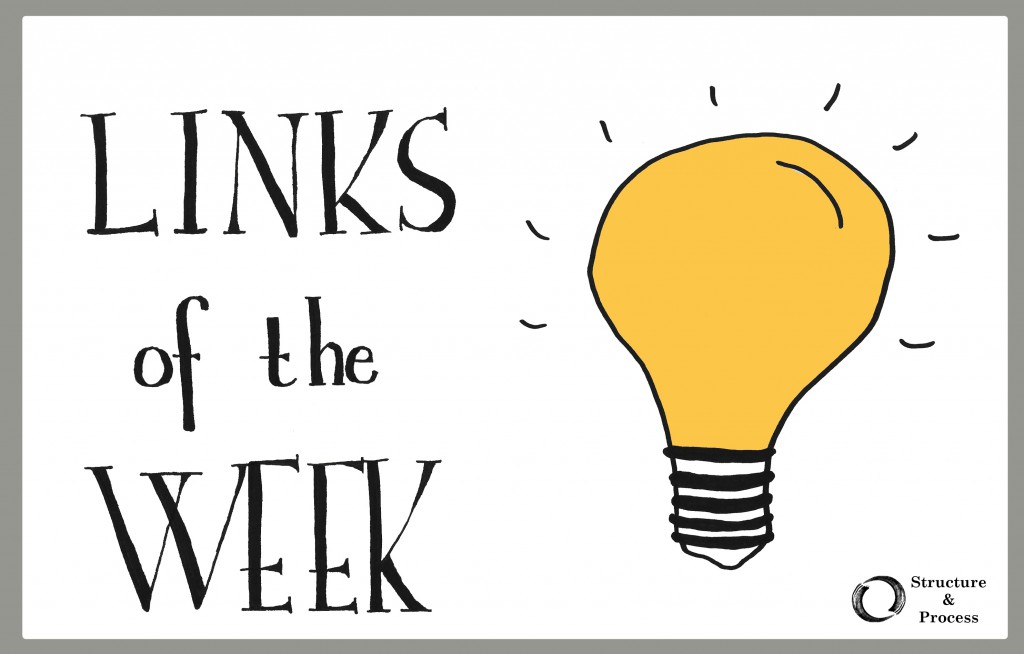Here are our Links of the Week, curated from our link collection.
Holacracy
“So whether you decide to pursue Holacracy or not, you should take some time thinking about the issues that it brings to the fore and ask: If not Holacracy, then what?”
“Getting people involved and making them understand how to become entrepreneurial. I feel that in the long run this is most crucial and difficult part.”
Consulting
A love declaration to the white board. The article counts the pros of using a white board and explains its role in consulting work: Consulting confession: I love the white board.
“It makes the experience creative, tactile, interactive, and open-ended. It’s a running joke with my teams that I will take any opportunity to pickup a dry-erase pen and head towards the whiteboard – like a moth to a night light.”
“It organically grows what’s working, and rejects what isn’t. Yet there’s still one person holding the vision for the whole.”
Body & Mind
Auf deutsch:
“Nach einer verbreiteten Ansicht bedeutet erwachsen zu werden, dass man auf die eigenen Hoffnungen und Träume verzichtet und sich mit der Realität abfindet. Ich finde das nicht erwachsen, sondern trostlos.”
